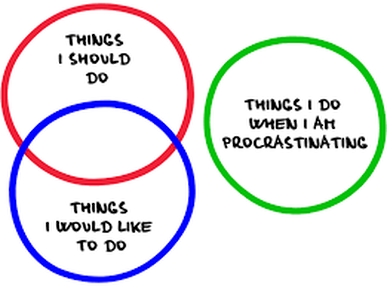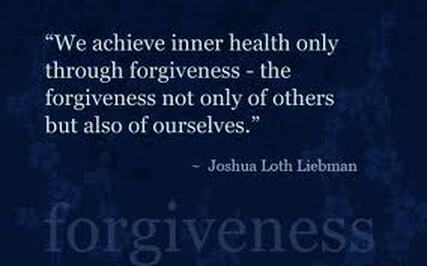Procrastination is often confused with laziness, but they are different. Procrastination is an active process of choosing to do something else instead of the task that you know you should be doing. In contrast, laziness suggests apathy, inactivity and an unwillingness to act. Procrastination usually involves ignoring an unpleasant, but likely more important task, in favor of one that is more enjoyable or easier.
Even minor procrastination can make us feel guilty or ashamed and can lead to reduced productivity and cause us to not achieve our goals. If we procrastinate over a long period of time, we can become demotivated and disillusioned, which can lead to depression and even job loss, in extreme cases.
Procrastination is a habit and if you understand how it shows up, you can make the choice to replace it with a better one. The first step to making a better choice is to recognize that you’re procrastinating...having the self-awareness to identify that you are making the choice to procrastinate.
The second step is to understand why. It's helpful to understand the reason(s) why you are procrastinating and allow that to help you strategize on how to change it. Here are some common reasons why people procrastinate:
- The task seems boring or unpleasant
- Disorganization
- The task seems overwhelming
- Worried about failure, doubt your abilities
- Fear of success and potentially having more tasks added to your plate
- Have a need for perfection
Below are some strategies to help to break the habit of procrastination. Habits only stop being habits when you avoid practicing them, so try as many strategies as possible to give yourself the best possible chance of succeeding.
- Commit to the task. Write down the tasks that you need to complete, and specify a time for doing them. Set weekly and daily "To Do Lists" that are prioritized with the 2-3 most critical tasks first.
- Aim to due the most unpleasant tasks first thing, every day. Get those tasks that you find least pleasant out of the way first. This gives you the rest of the day to focus on work that you find more enjoyable.
- Break large tasks down into smaller more manageable chunks. Focus on starting them, rather than on finishing them. Consider setting a timer for short manageable periods of time and go hard at it for reasonable time blocks.
- Promise yourself a reward. If you complete a difficult task on time, reward yourself and then work to savor the positive feeling.
- Ask someone to check up on you. Have an anti-procrastination buddy.
- Temptation bundle. Only do a thing you love while also doing a thing you procrastinate on. For example, listen to podcast (something you like) while running on the treadmill (something you don't like).
- Act as you go. Tackle tasks as soon as they arise, rather than letting them build up. I love the concept of...touch it once.
- Rephrase your internal dialog. The phrases "need to" and "have to," for example, imply that you have no choice in what you do. This can make you feel disempowered. Saying, "I choose to," implies that you own a project, and can make you feel more in control.
- Minimize distractions. Turn off your email and social media, and avoid sitting anywhere near a television.
Our brain has a natural tendency to value immediate reward versus future reward. Our present self and future self are typically at odds with each. Make it as easy as possible for your present self to get started, the motivation and momentum will come with productive action.


 RSS Feed
RSS Feed
